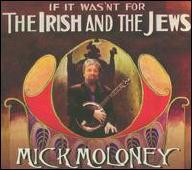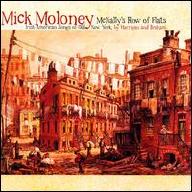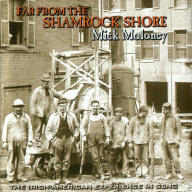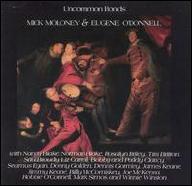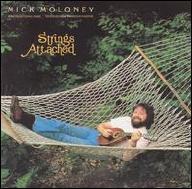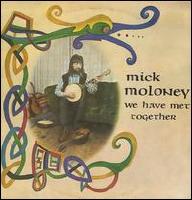Playing guitar since childhood, Moloney was initially influenced by American folk musicians Burl Ives, Pete Seeger, and the Weavers. While still a teenager, he played with a series of skiffle groups. Relocating to Dublin in 1964 to study economics at University College, Moloney regularly played at jam sessions in local pubs. Together with fellow student Donal Lunny, he formed a traditional folk group, the Emmett Folk Band. Although they never recorded, the group attracted a loyal following among Ireland's folk music aficionados. Following the band's breakup in 1967, Moloney became involved with a new folk club. Among the groups that he booked was a family act, the Johnstons, who invited him to become a member. Accepting the invitation, he remained with the group for five years and recorded five albums with them. Their interpretation of Ewan MacColl's song, "Travelling People," reached the top spot on the Irish music charts.
Temporarily moving to London in 1972, Moloney took a job as a social worker for West Indian families. While in London, he met and began playing with Derry-born fiddler Eugene O'Donnell. The collaboration resulted in three duo albums -- Mick Moloney with Eugene O'Donnell, Slow Airs and Set Dances, and Uncommon Bonds -- and a trio album, Three Way Street, with Seamus Egan. In 1973, Moloney emigrated to the U.S. for graduate studies in the Folklore and Folklife Department of the University of Pennsylvania. The 650-page dissertation Irish Music in America: Continuity and Change that he researched and wrote for his Ph.D. was published by the university press; he received his Ph.D. in 1992. Accepting a position with the Smithsonian Festival of American Folklife, Moloney assembled a group, Green Fields of America, with top-notch Irish-American musicians. The ensemble made its debut during a special Old Ways in the New World program at the festival in 1976. A decade later, Moloney put together a star-studded collection of Irish-American women musicians to perform as Cherish the Ladies.
Moloney has continued to play an important role in the development of Irish-American music. In addition to being named "best tenor banjo player" by Frets, he was named "traditionalist of the year" by the Irish Echo in 1999. The same year, he received a National Heritage Fellowship. A founder of the annual Irish music week at the Augusta Center in West Virginia, he continued to teach at Villanova University in Philadelphia. Moloney served as musical producer and consultant for the PBS documentary series Out of Ireland in 1995. As a record producer, Moloney has overseen albums by Uillean piper Joe Shannon, flute player Jack Coen, concertina player Father Charlie Coen, and fiddler Johnny McGreevy. Mick Moloney died on July 27, 2022 at his apartment in New York's Greenwich Village. He was 77. ~ Craig Harris, Rovi


